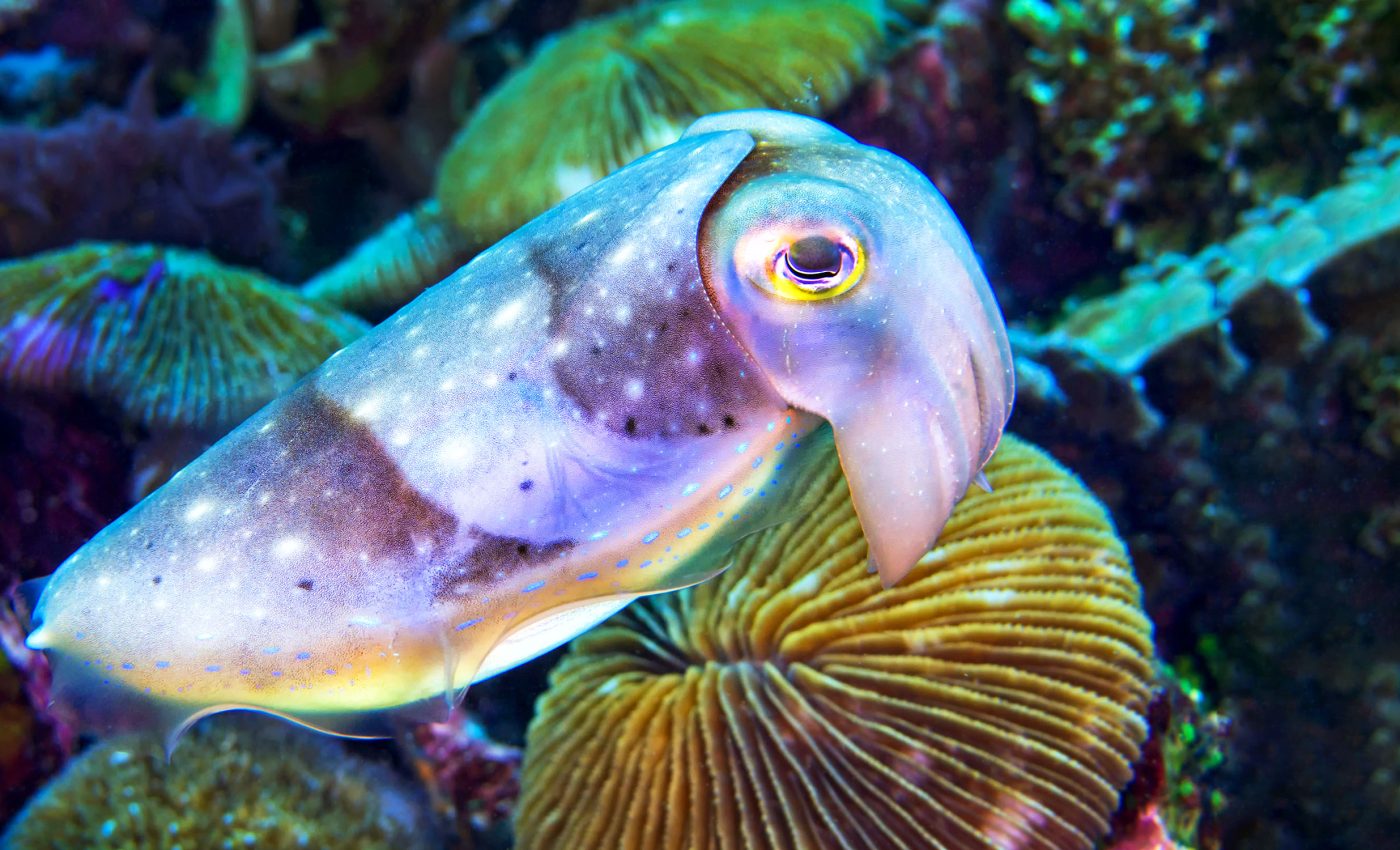
Cuttlefish form false memories of events similar to humans
Ever found yourself certain of a memory that later turned out to be a tad off the mark? While we’re known as species capable of ‘distorted’ recall, it turns out we’re not alone in the animal kingdom. A surprising entrant in this league of “detours from accuracy” in memory is the humble cuttlefish.
Memory of cuttlefish
We start by throwing the spotlight on the star of our story — the cuttlefish. More specifically, the research by Dr. Christelle Jozet-Alves and her team from the University of Caen in Normandy, France.
Their astounding discovery? Cuttlefish, like us, can form false memories.
“Forming false memories is different from making memory errors,” Jozet-Alves clarifies.
Indeed, their findings imply that cuttlefish do not record events like a reel of film, but rather reconstruct incidents in their minds, associating diverse elements present at the time.
Unexpected memory masters
Cuttlefish were already recognized for having episodic-like memory, a trait only found in higher order animals.
They can recall what happened to them in the past. But the fascinating part is how they recall these memories.
Is it a replay or a reconstruction? The answer would determine their susceptibility to memory distortions. With this question in mind, Jozet-Alves and her team embarked on their investigation.
Cuttlefish memory manipulation
The researchers designed a series of events that shared many common features to induce false memories in the cuttlefish.
The plan was to convince these creatures they’d seen their favorite snack – shrimp – in a specific tube when they hadn’t.
Here’s how they went about it. They started off by showing the cuttlefish three different tubes – one with the coveted shrimp, one with a less-preferred crab, and an empty one.
Each tube had a unique visual pattern. Next, they exposed the cuttlefish to a ‘misleading event’ where they made the contents of the shrimp and the empty tube invisible. The visual patterns and odors, however, overlapped.
Now the real test. Would the cuttlefish falsely remember the presence of shrimp in the otherwise empty tube due to its second appearance along with the shrimp tube?
Revealing results
The scientists then put this question to the test. They allowed the cuttlefish to choose between the crab tube and the supposedly-empty tube, both with their content hidden.
The consensus? The cuttlefish often chose the empty tube over the crab-filled one.
This choice indicated that the misleading information had indeed altered their memories, making them believe the empty tube contained shrimp.
Cuttlefish variation in memory
“What was surprising was that the susceptibility to form false memories seems different between individuals,” Jozet-Alves said.
“Some appeared unaffected when exposed to a misleading event while other did form false memories. This phenomenon is commonly found in our own species in which this susceptibility varies among individuals and within individuals.”
While there is need for more research, the evidence suggests that cuttlefish can store fragments of memory and reconstruct them, potentially optimizing memory storage.
However, some cuttlefish did not seem to form false memories, indicating a level of resistance.
Further research will delve into why all individuals are not sensitive to the formation of false memory and whether it could change within an individual.
Implications for human memory research
The discovery of false memories in cuttlefish provides a valuable perspective on the study of memory in humans. By understanding how these cephalopods process and potentially distort their memories, researchers can draw parallels and contrasts with human memory mechanisms.
This could provide insights into why certain individuals are more susceptible to false memories and how such memories can be manipulated or controlled.
The implications extend to various fields such as psychology, neurology, and even artificial intelligence, where understanding memory formation and retrieval is critical.
Furthermore, by studying memory errors in cuttlefish, new strategies could emerge to address memory-related disorders in humans, offering hope for enhanced cognitive therapies and interventions.
So, next time you’re second-guessing a memory, pause for a moment and think of our new friends, the cuttlefish. It seems that a “recollective detour” isn’t a flaw exclusive to us but a fascinating feature present in even our underwater counterparts.
The study is published in the journal iScience.
—–
Like what you read? Subscribe to our newsletter for engaging articles, exclusive content, and the latest updates.
Check us out on EarthSnap, a free app brought to you by Eric Ralls and Earth.com.
—–













